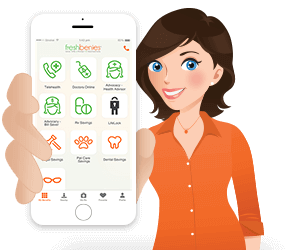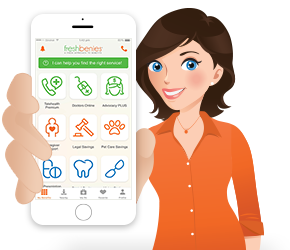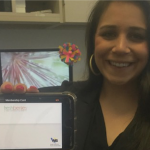6 WAYS TO SLASH YOUR HEALTHCARE COSTS
Did you know Americans spend almost $3 trillion a year on medical care? That’s a big number, but what’s scarier is this: it’s estimated that about 30% is spent on unnecessary care. What? Since the average family spends $3600 each year in out of pocket costs – avoiding unnecessary care is worth about $1,000 savings.
Who do we blame? You might point to our litigious society - doctors need to order a million tests as a 'CYA' for malpractice lawsuits. You might say it’s because doctors are greedy and more tests equals more money. You might believe doctors care deeply about their patients and want to be SURE about a diagnosis. Maybe it’s some of those things or a combination of all of them.
The bottom line is this: the only thing we can control is how we deal with our own healthcare. “As premiums rise and consumers face higher deductibles, unnecessary spending will harm increasing numbers of people financially,” says Gary Fradin, President of The Medical Guide.
Here are 6 ways you can avoid unnecessary care…
1) Get your preventive care!
If the first time you’re sitting in a doctor’s office is with a potentially serious health problem, that’s not good. She doesn’t know you, your personality, your body, your medical history, etc. - you don’t know and/or trust her. At this point, is there a better chance she’ll order more (potentially unnecessary) tests to determine an accurate prognosis? Probably so.
Even more concerning is the amount of care required when issues are caught later due to a lack of preventive care. Annual well-visits, mammograms, and more are now covered at no cost to you under most health insurance plans. There’s a simple reason for this: because preventive care cuts down on long-term healthcare costs. For instance, if breast cancer is caught in the early stages, there’s more chance to avoid or reduce the expense of biopsies, lab tests, medications, surgeries, hospital stays, doctor visits, etc. According to the US National Library of Medicine, the lifetime costs of breast cancer range from $20,000 to $100,000. I’ll take a free or $100 mammogram over that price ANY DAY!
2) Stay or get healthy!
Five years ago, my friend was diagnosed with Diabetes. In a recent article, she shared the 4 steps she took to reverse the effects that her poor eating habits and lack of exercise had done to her health. Spoiler alert: within 10 months, she was able to come off all diabetic drugs and felt better than she had in years. That was 5 years ago.
According to the American Diabetes Association, people diagnosed with diabetes have 2.3 times more medical expenses that those without the disease.
Whether you’re diabetic or not, eating healthy foods and increasing activity are better for our bodies and our checkbook!
3) Ask questions!
Most of us are embarrassed to ask questions of or second-guess our doctors. “My doctor has 16+ years of schooling and 15+ years of experience - and I’m going to question him?” Let me remind you that 30% of healthcare spending is unnecessary and it’s your doctor who is likely the prescriber. That should give you more confidence that questioning your doctor is the right thing to do. Your healthcare is your responsibility - not your doctor’s! Your treatment should be a joint discussion.
In his article, The #1 Key Question to Ask Your Doctor, Gary Fradin notes that “only about half of all medical treatments are beneficial – while some treatments make biological, theoretical and logical sense, they are proven ineffective in clinical tests about half the time.” He counsels people to ask, “How good is the evidence that this care will benefit ME?” In other words, focus discussions with your doctor on medical evidence and outcomes. You’ll get better care and will likely avoid unnecessary or harmful interventions.
I just watched a TED video and it’s a great example of why it’s important to ask questions. Talithia Williams is a statistician who was pregnant and past her due date. When a doctor suggested it was time to induce, she questioned him ruthlessly about the odds, facts, etc. based on her body’s statistics. Here was her conversation…
Doctor: Your chances of having a miscarriage double when you go past your due date. Let's get you a room.
Talithia: Okay, great. Do I go from a 30% chance to a 60% chance? Where are we here with this miscarriage thing?
Doctor: Not quite, but it doubles, and we really just want what's best for the baby.
Talithia: Okay, out of 1,000 full-term pregnant women, how many of them are going to miscarry just before their due date?
Doctor: About one in 1,000.
Talithia: Okay, so of those 1,000 women, how many are going to miscarry just after their due date?
Doctor: About two.
Talithia: Okay, so you are telling me that my chances go from a 0.1% chance to a 0.2% chance.
As a result of her questions and SUPER low odds, Talithia decided to wait. She goes on to make the case that all of us should measure and record simple data about our bodies every day (weight, temp, etc.) - because our own data can reveal much more than even our doctors may know.
Here’s the deal: most doctors will appreciate you taking some ownership in the decision-making process. And let’s be honest - it’s not always a health-driven decision. Sometimes it’s a money issue, too. Today, the costs are likely coming right out of your pocket, so it makes even more sense to have an involved and active discussion about your care.
4) Be honest!
How many times do you hear of someone who had concerning symptoms, yet waited too long to go to a doctor only to finally learn they had Stage 4 cancer? Why would they wait? Many people say it’s because they didn’t want bad news. But, that’s just sticking your head in the sand!
There’s knowing your body and then there’s acting on changes that don’t feel right. You have to 1) be honest with yourself and 2) be honest with your doctor. Even in embarrassing situations, you have to tell your doctor what’s happening. Trust me, they’ve already heard it! And hey, many times it’s something simple that can be quickly diagnosed and treated. It’s the one time that matters, so be honest and seek help. Think of how different the experience would’ve been if it was caught early.
5) Get a second opinion!
Most of us will face one major medical decision in our lives. If it’s not an emergency situation, a second opinion is a smart idea. A good doctor will appreciate it – after all, nobody is right all the time! Most will support the choice and will probably help with a referral to another doctor.
In 2010, a Gallup poll revealed that 70% of Americans feel confident in the accuracy of their doctor's advice, and don't feel the need to check for a second opinion or do additional research. In contrast, I think it’s interesting that we’ll visit multiple dealerships and research online for hours when we’re about to lay down thousands for a car or large appliance. Yes, second opinions are time consuming, more expense and can be overwhelming. But it’s much more important than a car or dishwasher – and could turn out to be a MUCH bigger impact on your life and your checkbook!
6) Access the right care!
Popcorn at a movie theater is $6 - $8 a bag vs. a convenience store at $1 or a grocery store at $.30. Healthcare works the same way – the same advice/service can cost a lot more depending on where you get it. If you’re going to an emergency room, it’s going to be expensive – it is, after all, the most technologically advanced room in your entire city! So be sure your illness is deserving of the attention and expense. It’s worth thousands of dollars to get it right!
Consider subscribing to a telemedicine service. These services provide 24/7 access to general practitioners, pediatricians, internists, etc. via phone or video. In most cases, you can contact them quickly for advice on best next steps based on your symptoms. The cost of having this type of service for your family is nominal considering the $1,500 bill you’ll pay for a bottle of Pepto if those stomach pains turn out to be a simple case of food poisoning.
Now, it’s your turn! Have you avoided an unnecessary healthcare situation? Did you have something done that you look back and question?
















